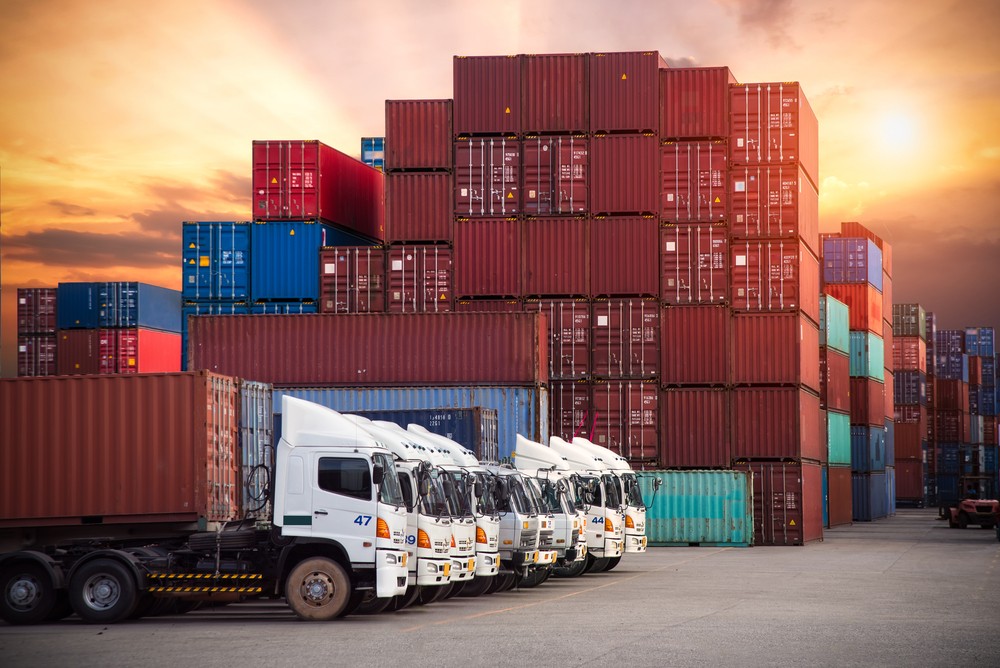New research from Digital Realty has revealed that senior executives within the transport and logistics industry are looking to cutting-edge technologies to facilitate exponential industry growth, but are worried about an infrastructure bottleneck.
The transportation sector is a vast generator of data. In fact, so much data is generated by the industry – through things like RFID systems and inventory management apps – that data production has almost doubled every 40 months since the 1980s. It is projected the volume of data will be 44 times greater in 2020 than in 2009.
Transport and logistics is also a rapidly growing industry. In 2018, revenues across the industry globally were estimated at $5.1tn. By 2023, the industry as a whole is projected to be worth an estimated $15.5tn, with the volume of goods shipped projected to quadruple by 2050.
Given this accelerating pace of change, transportation and logistics companies are under increased pressure to remain competitive, deliver quality customer service and find innovative ways to optimise their operations to satisfy their increasingly demanding customer bases.
To combat this, senior executives are turning to cutting-edge technology for their solutions. According to the research, automation (70 per cent), freight technology (60 per cent) and real-time understanding of transport systems (58 per cent) are the areas with the greatest potential to transform the industry. Over a third (35 per cent) are of the opinion that robotic process automation (RPA) will bring about the biggest change in the industry in the next decade, followed by artificial intelligence (AI) (24 per cent).
Senior executives are also investing in order to achieve these transformations. Nine in ten respondents (91 per cent) said they are continually looking to increase their investment in their data infrastructure, with over a fifth (22 per cent) reserving between £10m and £50m of their budget for innovation and progression of data connectivity.
It is clear to see why. According to the findings, almost all respondents (98 per cent) felt that there was a lot to gain from better data connectivity, and a fifth (16 per cent) believe that other sectors are in fact ‘lagging behind’ with regards to leveraging and optimising data connectivity.
Additionally, three quarters (73 per cent) believe that data connectivity has resulted in better customer service and experience, better security (73 per cent) and safer transport (70 per cent).
Industry leaders warn, however, that the industry has obstacles to overcome in realising these potential gains. Over 60 per cent aren’t confident in the data infrastructure they currently have in place, which could be deemed problematic given the role it plays in facilitating emerging technology.
The findings also demonstrate that leaders believe there is a multitude of factors holding back innovation within the industry, citing cost (55 per cent); lack of support from government (48 per cent) in terms of both funding and legislation to improve the road infrastructure and the ease of importing and exporting; global competition (43 per cent); and regulation like GDPR (41 per cent) coming top of the list.
The logistics industry faces unique challenges in rolling out new technology. Data infrastructure is mission critical and must be totally operational and connected anywhere in the world, at any time, without fail.
“While it is encouraging that the industry is looking to invest in new technology, it is important to ensure that the right technology is selected for their business,” says Jeff Tapley, Managing Director, Digital Realty.
“It needs to be flexible; after all major logistics operations are by their nature global, so ensuring that technology can be deployed anywhere, at any time, is crucial. Ensuring it is the right fit for the business is fundamental: you wouldn’t bring a cricket bat to a tennis match.”
Tapley continues: “There is no benefit to having a tonne of infrastructure if it is totally fragmented and unable to work efficiently. That is why we are working to provide a single flexible platform able to adapt and seamlessly work with cutting-edge technology anywhere it is needed.”




